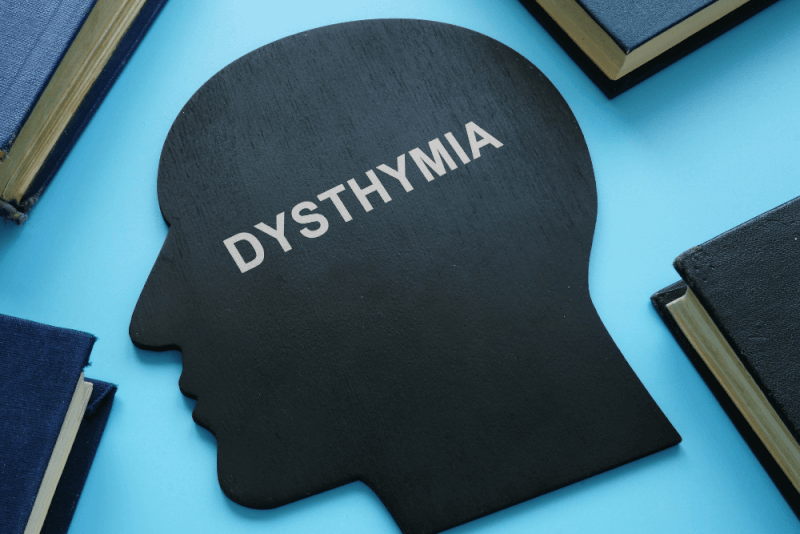What is a behavior disorder?
Conduct disorder affecting children and young people is a mental health condition characterized by consistent patterns of aggressive behaviour and actions that harm the well-being of others. People with conduct disorder often violate social norms and rules. Conduct disorder falls within the spectrum of disruptive behavior disorders, including oppositional or oppositional defiant disorder. Conduct disorder is often associated with depression, learning disorders, attention deficit and hyperactivity disorder.
Causes of behavior disorder
Research on the causes of conduct disorder does not give a clear result. For this reason, researchers believe that conduct disorder is caused by the combined effects of genetic, biological and environmental factors.
Genetic factors of conduct disorder include the following.
- Several studies show that certain features of conduct disorder, including antisocial behavior, impulsivity, aggression, temperament and insensitivity to punishment, can be inherited.
- Traumatic brain injury
- High testosterone levels are associated with aggression.
- Seizures
- Neurological damage
Parent, family and environmental factors in conduct disorder include the following.
- Parents of adolescents and children with conduct disorder often show substance abuse or antisocial behavior.
- The parents of these children often have a history of ADHD, mood disorders, antisocial personality disorder or schizophrenia.
- In a family environment where there is insufficient supervision and frequent conflict between parents, children may exhibit maladaptive behaviors. These behaviors also cause behavioral disorders.
- Children who are frequently exposed to domestic violence are more likely to develop behavioral disorders.
- Living in low social and economic environments with overcrowding and unemployment
- Increased crime rate and presence of drugs in the child's neighborhood
Symptoms of behavior disorder
Symptoms of conduct disorder develop gradually over time. Children with conduct disorder tend to be impulsive and difficult to manage. Because they are not interested in the feelings of others.
The 4 main symptoms of conduct disorder are.
- Serious rule violations
- Cheating, lying or stealing
- Destruction of property
- Attacking people or animals and violating the fundamental rights of others
Symptoms of aggressive behavior towards others in people with conduct disorder are as follows
- Harming animals
- Bullying
- Blaming others for their own behavior
- Physical violence, possibly with a weapon
- Forcing sexual activity
- Verbal fights
- Threatening behavior
Signs of destruction of property may include the following.
- Intentionally starting a fire
- Damaging the property of others
Symptoms of cheating or lying include the following.
- Stealing from individuals or stores
- Lying to gain favors or to avoid responsibility
- Breaking into homes or workplaces
- Signs of rule violations include the following
- Frequently violating the rules set by parents
- Running away from home
- Not going to school
- Breaking the rules without a clear reason
Other common symptoms of conduct disorder include.
- Heavy alcohol consumption or substance abuse
- Having zero-risk sex
- It is easy to be disappointed
- Making no effort to conceal aggressive behavior
- Showing no remorse for actions
- Difficulty making and maintaining friendships
Rebellious behavior is common in childhood and adolescence. However, for a diagnosis of conduct disorder to be made, the symptoms must form a disruptive and recurrent pattern
Symptoms of conduct disorder in adults
Symptoms that may occur in behavioral disorders in adults include the following.
- Difficulty maintaining a job
- Difficulty maintaining relationships
- Prone to illegal or dangerous behavior
Symptoms of conduct disorder in adults can also be considered antisocial personality disorder.
Behavior disorder treatment
In the treatment of conduct disorder, various forms of psychotherapy for the child and family as well as community-based treatment are adopted.
Psychotherapies
Therapies for children and adolescents with conduct disorder include.
Parent management training
The aim of this therapy is to train parents to establish consistent discipline by appropriately rewarding the child's positive behavior.
Psychotherapy
It is a term that encompasses a variety of treatment techniques aimed at helping the person with conduct disorder to identify and change disturbing feelings and thoughts behaviors. Working with a mental health professional who specializes in this area can provide support, education and guidance to both the patient and their family. Psychotherapies for conduct disorder generally target family life and school life, focusing on improving family dynamics, academic functioning, and children's behavior in various settings.
Anger management training
Anger management training aims to reduce both the emotional sensations of the child and the physiological arousal caused by anger. It is not possible for people with conduct disorder to completely avoid things or people that make them angry. Anger management training therefore teaches children how to control their reactions.
Cognitive behavioral therapy
Individual psychotherapies such as cognitive behavioral therapy make it possible for a child with conduct disorder to develop individual therapy, problem-solving skills, strengthen relationships by resolving conflicts, and develop learning skills to reduce negative influences in their environment.
Community-based treatment
With this treatment method, destructive behaviors are reduced. Therapeutic schools and residential treatment centers are used to implement the program.
Medication
There is no medication that directly treats conduct disorder. However, because other mental problems often occur alongside the behavioral disorder, the child may need medication to manage these conditions.
Behavior disorder in adults
Children and adolescents under the age of 16 are usually diagnosed with conduct disorder. However, behavioral disorders can also be diagnosed in adulthood. Symptoms of conduct disorder in adults are similar to those seen in children. Adults are also diagnosed with conduct disorder if these symptoms persist for at least one year. However, when it comes to adults, adults are not usually diagnosed with conduct disorder because the symptoms are similar to those of antisocial personality disorder as well as conduct disorder.
If the symptoms in adults include symptoms of both conduct disorder and antisocial personality disorder, then adults are diagnosed with antisocial behavior personality disorder. The important factor in the diagnosis of conduct disorder is the age of the patient. In adults as well as in children, conduct disorder may be accompanied by concurrent diagnoses such as attention deficit hyperactivity disorder, substance abuse, post-traumatic stress disorder, anxiety disorders, depression or bipolar disorder. Adults can also experience learning difficulties.
Types of behavior disorders
Attention deficit and hyperactivity (ADHD)
Children with attention deficit hyperactivity disorder, a neurodevelopmental disorder caused by the different functioning of certain chemicals in the brain, experience short attention spans and focusing problems. In addition, patients' daily lives are severely affected by hyperactivity symptoms.
Although the cause of attention deficit hyperactivity disorder (ADHD for short) is not fully understood, it is thought to be caused by genetic and environmental factors. These causes alter the functioning of chemicals in the brain, leading to changes in the neural networks in the brain. The presence of ADHD in the parents is one of the reasons that increase the likelihood of it in the child. In addition, other factors that are effective in ADHD include the following.
- Low birth weight
- Disruption of signal transmission between neural networks in the brain
- Unfavorable economic conditions
- Some chemicals such as dopamine, serotonin and norepinephrine do not function properly
- Brain damage in childhood
- If your mother took medication during pregnancy
- Maternal smoking during pregnancy
- Toxins exposed during pregnancy
- Drug use by the mother during pregnancy
Symptoms of attention deficit hyperactivity disorder
Attention deficit hyperactivity disorder is often seen simultaneously. However, both conditions cause different symptoms. For this reason, the symptoms caused by attention deficit include the following.
- Starting one task before finishing another
- Easy distraction
- Difficulty listening
- Difficulty completing tasks
- Difficulty starting or finishing tasks
- Don't lose sight of the details
- Difficulty organizing work
- Difficulty in doing things in order
Symptoms caused by hyperactivity disorder include the following.
- Tendency to run or climb
- Being too active
- Continuously moving hands and feet continuously
- Difficulty sitting quietly
- Talking unnecessarily
- Being impatient
- Inability to stay still for long periods of time
- Difficulty sitting upright
The symptoms of impulsivity seen in patients include the following.
- Frequent problems in relationships
- Experiencing difficulties during waiting
- Tendency to take risks in dangerous situations
- Interrupting others and speaking without thinking
- Acting without calculating the consequences of their actions
Behavioral eating disorders
When children's eating habits change in a negative way and thus lead to irregularities, it is called behavioral eating disorder. These changes include behaviors such as picky eating, refusing food or overeating. The presence of a behavioral eating disorder leads to developmental problems or obesity.
In the treatment of behavioral eating disorders in children, it is necessary to work together with a nutritionist for the regulation of nutrition and a child psychologist for the treatment of behavioral disorders.
Behavioral sleep disorders
Sleep problems are a common problem among children. Sleep problems include nightmares, bedwetting and frequent awakenings. In the treatment of behavioral sleep disorders, methods such as establishing relaxing sleep routines, paying attention to sleep hygiene, regulating the sleep environment and psychotherapy are used.
Depression and anxiety disorders
Depression and anxiety in children can be seen with different symptoms. These symptoms include the following.
- Unhappiness
- Introversion
- Asocial behavior
- Excessive worry
- Fear
- Panic attacks
Treatment of depression and anxiety can include family and individual therapy as well as medication. The most important point in treatment is that the physical and emotional needs of the child are met by the family and the child is supported. In this way, the child can be taught to cope with stress.
Oppositional defiant disorder
Children with oppositional defiant disorder often exhibit rebellious and hostile behavior towards authority. Children with oppositional defiant disorder may not follow adult instructions and often defy rules. This leads to rebellious and rebellious behavior in children.
Behavioral disorders and coping methods
In addition to providing professional care for people with behavioral disorders, their environment can also help them in various ways. These methods include the following.
- Learning more about conduct disorder, including the latest research on effective treatment approaches, is one of the most important keys to coping with the disorder.
- How to deal with the person with conduct disorder should be discussed with a psychologist trained in diagnosing and treating conduct disorder.
- Available treatment options need to be individualized to meet the needs of the child and be family-centered.
- The person with conduct disorder should be surrounded by a family group or organization that will support him/her.
Sexual behavior disorders in adolescents
Especially in the last 20 years, content containing various sexual activities on the internet has become easily accessible. Between the ages of 9 and 16, one of the most common sexual activities during normal sexual development is pornography consumption. Generally, pornography consumption does not have a negative impact on young people's mental health. On the contrary, it helps to explore sexuality in a normal way. On the other hand, it reflects compulsive sexual behavior during porn consumption in 10%-18% of adolescents.
Symptoms of sexual behavior disorders include the following.
- Intensive pornography consumption
- Intense masturbation
- Use of paid sexual services
- Risky sexual behaviors
- Intense preoccupation with sexuality







